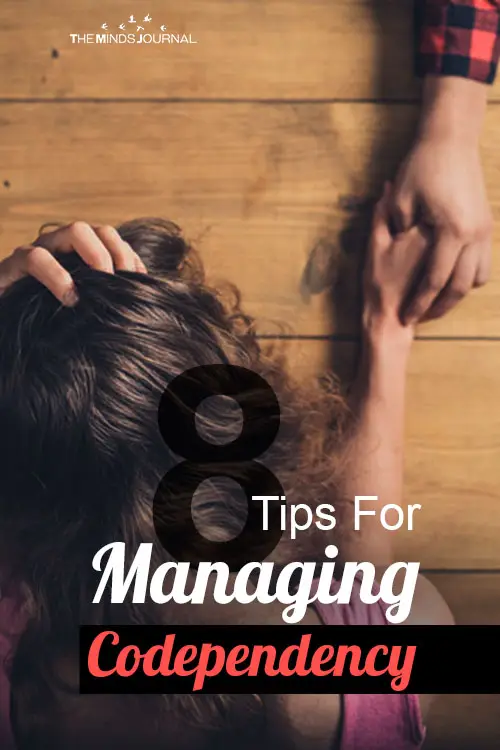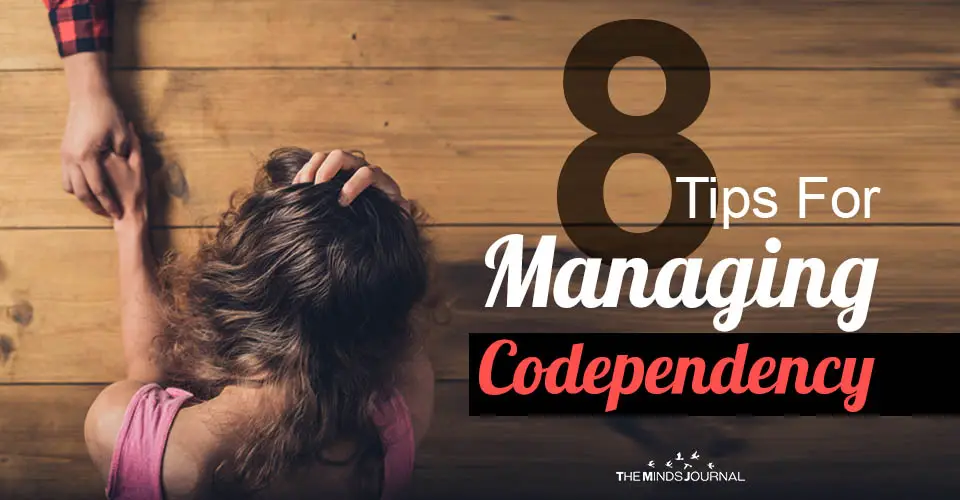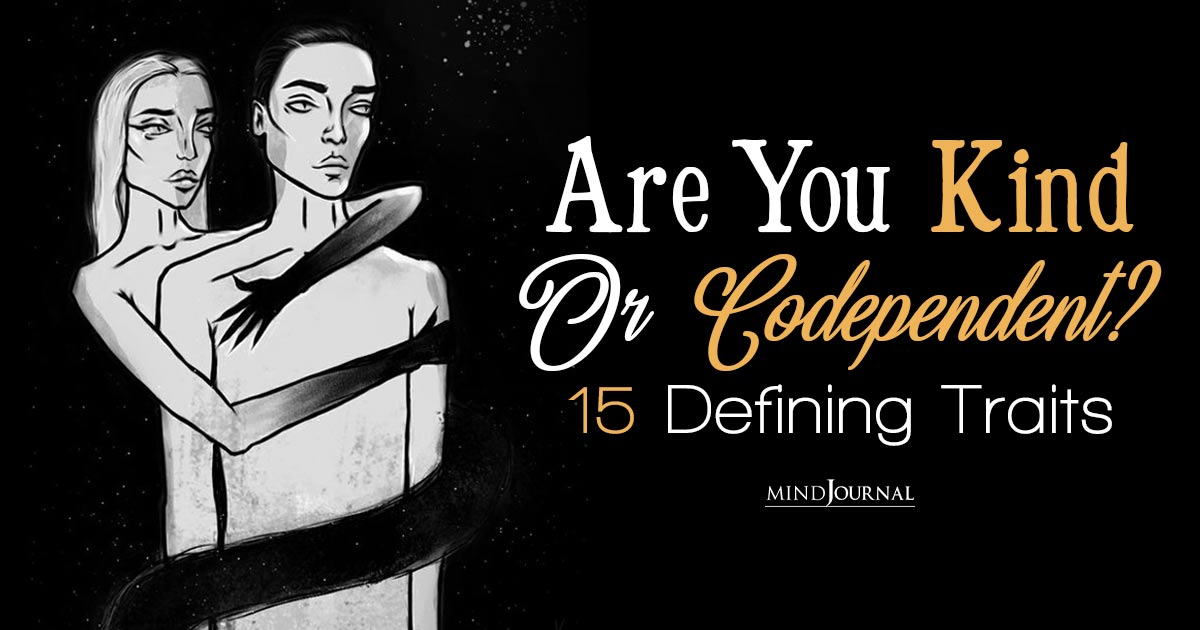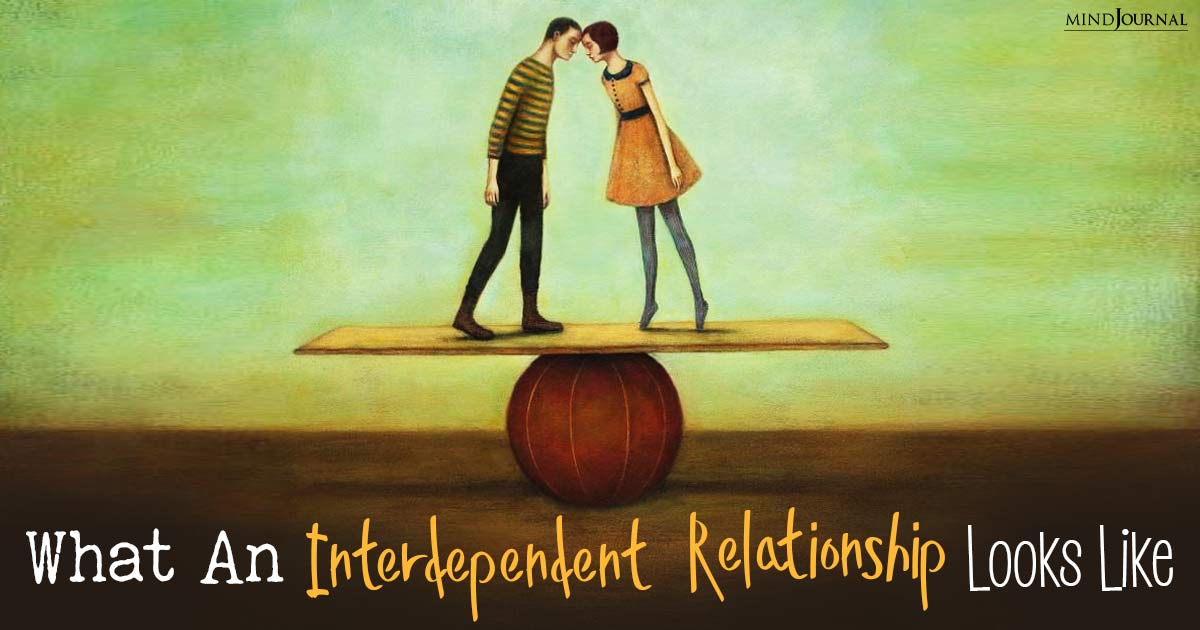Have you ever been in a relationship that is defined by codependency? Have you ever tried managing codependency, but have always fallen short?
Codependency refers to individuals who belong to relationships that are often dysfunctional and one-sided. The codependency partner will typically rely on the other to meet all their needs especially emotional needs.
Codependent connections can also relate to ‘enabling’. In this context, this means enabling irresponsible, poor mental health, addictive or underachieving behavior.
Here Are All The Signs Of Codependency
– Consistent Self- Betrayal.
– Prioritizing the needs of others before, or explicitly ignoring your own.
– Excessive people-pleasing.
– Feeling responsible for other people’s thoughts, behavior, and overall wellbeing.
– Over-extending help to others, whilst refusing to ask for help for your own circumstances.
– Utilizing the psychological defense mechanism of ‘Altruism’, in an attempt to ‘keep the peace’ even when this breaches your personal safety types (Emotional Safety, Mental Safety, Spiritual Safety, and Physical Safety).
– Seeking abusive relationships, due to low self-esteem and low self-worth.
– Utilizing the defense mechanism of ‘Denial’. Codependents usually deny their own feelings and behaviors and attribute or project, issue to, or on to, other people.
– Lack of personal boundaries, or a refusal to set them in the first place out of guilt for how this may be received by others.
– Dysfunctional communication – This can refer to being afraid to express your truth, valuing the opinions of others more than your own, dishonest communication or severe conformity.
– Obsessive thinking – especially concerning your ‘mistakes’ and how other people perceive them.
– The need to be liked by ‘everyone’. An obsessive need for approval by others.
– The need to control others. This helps the co-dependent to feel both ‘safe’ and ‘secure’. Co-dependent may manipulate the behavior of others – even by using the art’ people pleasing’, through the act of care, shaming, and Guilt-tripping.
– Difficulty in making decisions.
– Demonstrations of emotional reactivity. Co-dependents usually take things personally and can become defensive. Comments by others are received as reflections of self. This can be due to a lack of boundaries (both personal boundaries and an understanding of Boundaries ).
– They need to always be in relationships.
– Not being able to differentiate between ‘Love’ and ‘Pity’.
– Dependency on others. Fear of both ‘Rejection and ‘Abandonment’ exists. Even when intimate relationships are painful and/ or abusive — the codependent will remain in the relationship. Being alone for a long period of time.
Want to know more about managing codependency? Read Codependency in Toxic Relationships: Symptoms, Signs and How To Recover
Here Are 8 Tips For Managing Codependency
1. Identify your relationship pattern.
(1) What type of partner do you typically seek? Are there any common personality, or circumstantial, traits?
(2) How do you typically interact with your partner? What behaviors emerge from you and your partner
(3) How are you typically treated within your relationship?
2. Practice effective communication.
(1) Use ‘I’ statements
(2) State what you want and be okay with this (say what you mean and mean what you say);
(3) Practice saying ‘No’;
(4) Proactively listen to others;
(5) Ask for feedback to ensure that your ‘message’ has been received as intended;
(6) Seek and provide clarity.
3. Understanding creating and maintaining personal boundaries.
(1) Identify what an unhealthy ‘Boundary is;
(2) Identify what you need
(3) Communicate what you need respectfully – you needn’t over-explain;
(4) Remember; any negative responses, to the boundaries that you set, are not your responsibility.
4. Develop self-worth.
(1) Remind yourself of the things that do not measure of self-worth; profession; wealth; social media following and engagement; Grades; friendship and relationship count.
(2) Silence your inner critic;
(3) Ask yourself, and assess, ‘who’ you are;
(4) Practice self-acceptance;
(5) Practice self-responsibility.
5. Practice self-care.
(1) What do you genuinely ‘like’ or ‘dislike’
(2) Explore your thought patterns;
(3) What do you desire?
(4) What are your passions
(5) Physical Exercise;
(6) Observe emotions
(7) creating and reciting, positive affirmations, etc.
Looking to know more about managing codependency? Read Are You Losing Yourself In Your Relationship? Stages of Codependency and what you can do about it
6. Understand the difference between saving others vs supporting others.
Saving others refers to attempting to fix, or rectify, someone else’s circumstances before they’ve been able to process it for themselves (or take action). Supporting others refers to empathy, encouragement, empowerment, etc.
7. Focus on yourself.
(1) You are not responsible for the happiness of others
(2) You cannot fix, or change others. They have to be in the Psychological state to do so for themselves.
(3) You can’t control the behavior of others- but you are in control of your own behavior.
(4) What expectations do you have for yourself?
(5) How do you judge yourself?
8. Boost self Esteem.
(1) What are your personal values?
(2) Challenge negative beliefs
(3) Heal from unresolved trauma
(4) Re-evaluating your social networks
(5) Re-evaluate your holistic consumption.
(6) Find lessons in mistakes and failure
(7) Practice mindfulness
(8) Do not compare yourself to others
(9) Exercise Compassion, love, and act of kindness unto others
(10) Practice forgiveness.
Work with a Psychologist, Counsellor- or other Professional to ascertain the following:-
- Attachment history
- Relationship history and patterns
- Psychological Triggers
- Inner Child work
- Cognitive Schemas
- Positive Psychology strategies
- Strategies to both heal from and co-exist with, previous issues, unsolved trauma.
If you want to know more managing codependency, then check this video out below:





Leave a Reply
You must be logged in to post a comment.